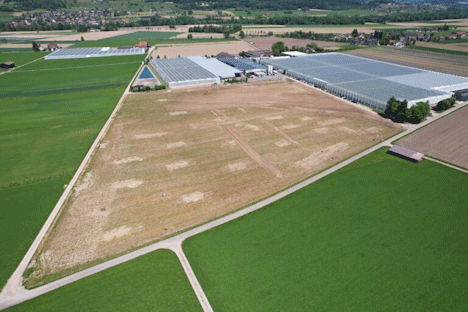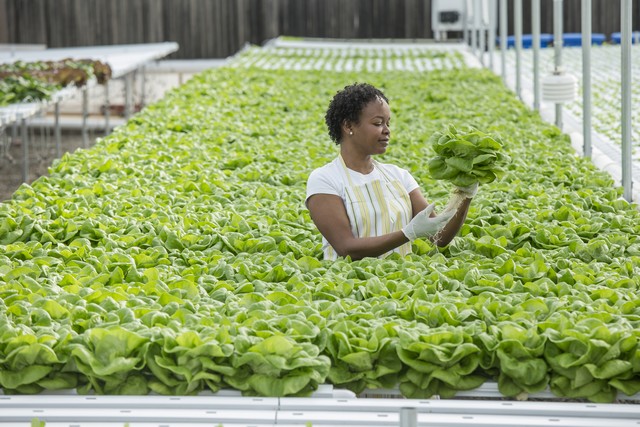In an ambitious step towards sustainable agriculture, Rathgeb Bio and Kellermann Gemüsekulturen have embarked on a joint venture to construct a state-of-the-art, 4-hectare organic greenhouse in Ellikon an der Thur. This innovative facility, scheduled to begin operations in early 2025, will focus on the organic cultivation of tomatoes and cucumbers using renewable energy sources. This project is set to significantly enhance the production capacity of both family-run businesses and contribute positively to the regional economy.
Since April 2023, Rathgeb Bio and Kellermann Gemüsekulturen have been working closely together, merging their expertise to push the boundaries of sustainable agricultural practices. The new greenhouse will leverage an existing site development plan, allowing for a swift realization of the project. This efficient implementation underscores the partners’ commitment to quickly bringing sustainable solutions to the market.
The greenhouse will not only produce healthy, organic vegetables but will also be powered by renewable energy, underscoring a commitment to environmental sustainability. By utilizing sustainable energy, the greenhouse will reduce its carbon footprint, aligning with broader global efforts to combat climate change. This method of production represents a significant advancement in reducing the environmental impact of agricultural practices.
Furthermore, the project will foster local economic growth by creating sustainable and attractive jobs within the region. The establishment of this greenhouse is anticipated to enhance the value chain for organic produce, ensuring that fresh, locally grown vegetables reach consumers more efficiently. This initiative aligns with growing consumer demand for sustainably sourced and organic food products.
The integration of renewable energy in this project is particularly noteworthy. According to the latest data, greenhouses powered by renewable energy can reduce greenhouse gas emissions by up to 90% compared to conventional fossil fuel-powered greenhouses. This transition to renewable energy sources in agriculture is crucial for meeting international climate goals and promoting long-term environmental stewardship.
The collaboration between Rathgeb Bio and Kellermann Gemüsekulturen to build a 4-hectare organic greenhouse marks a significant advancement in sustainable agriculture. By combining organic farming with renewable energy, this project not only meets the rising consumer demand for sustainable products but also sets a precedent for future agricultural practices. The initiative promises to boost local economies, create sustainable jobs, and significantly reduce the environmental impact of food production. This forward-thinking project exemplifies the potential for innovation in agriculture to drive both economic and environmental benefits.










